Dear Brothers and Sisters,
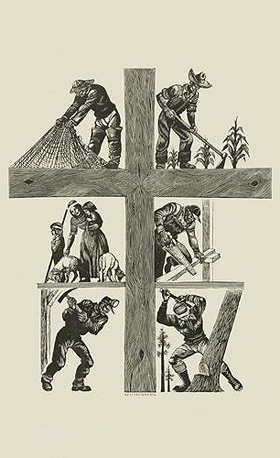
Grace and peace to you in the Name of our Lord Jesus Christ! As we write to you on the eve of Labor Day 2013 we observe that these are troubled times for workers. We live in a time of high unemployment; average wages continue to stagnate, the disparity between rich and poor continues to grow, and the vision that inspired the founding of a national holiday to honor labor is under siege by ideological and political developments. We call the church to reflect on these realities in light of its rich theological and ethical heritage that stretches back over a century to the Presbyterian Church’s first “Workingman’s Department” in 1903.
[wpcol_1half id=”” class=”” style=””]The Christian doctrine of vocation affirms the dignity of work. It warns against reducing the value of work to a paycheck or confusing it with any conferred social status. Instead, it values work as service rendered to God and neighbor (inclusive of all God’s creatures). We call on all Christians to employ their God-given gifts and powers in work that enhances flourishing and to respect the good work of others, no matter how humble it may seem.
A theo-centric perspective on work insists that the fruits of labor (the wealth created by many workers through the specialization of labor) belong to God and should be held as a trust from God. We call on employers to faithful stewardship of this trust by seeking a proper profit and by fairly compensating their workers with a living wage; for to fail to do so constitutes theft (James 5:4). We encourage church members and others to consider how questions concerning compensation and the distribution of wealth must guided by principles of justice. In particular, we invite members to explore how we reverse recent economic trends that are eroding the middle class and “grinding the faces of the poor” (Isaiah 3:14-15).
A theological view of work affirms that we live in a world of vocations where every person, as a child of God, has a particular calling in which to employ his or her gifts. High unemployment indicates that something is grievously skewed. We call on political and economic leaders to pursue policies that will hasten economic recovery and lead to full employment. We also call on those who hold positions of public and private power to make appropriate investments in education, infrastructure and research and development that will enhance employment in the future.
[/wpcol_1half] [wpcol_1half_end id=”” class=”” style=””]Presbyterian Principles of Vocation and Work[1]
- Vocation is a lifelong response to God in all aspects of one’s life. Work, paid and unpaid, is an integral part of the believer’s response to God’s call.
- The church must seek to become a model employer by providing workers with adequate compensation, meaningful opportunities for participation in decision-making, leisure time in which to participate in family and community life, and by developing a reasonable relationship between the highest and the lowest salaries paid to all church workers.
- Inequalities in compensation and working conditions demand the strictest scrutiny.
- All conditions of paid employment, including compensation and working conditions, should sustain and nurture the dignity of individuals, the well-being of households and families, the social cohesiveness of communities, and the integrity of the global environment.
[/wpcol_1half_end]
[wpcol_1half id=”” class=”” style=””]Resources for Congregations
Labor Day Weekend of Prayer, Fasting and Action for Fair Food:This Labor Day Weekend, the PC(USA) through the Presbyterian Hunger Program/Campaign for Fair Food and the Human Trafficking Roundtable invite you to a time of prayer, fasting and action for Fair Food. These “sermon seeds” and resources have been prepared to assist you in this spiritual undertaking.
Join faith communities across the U.S. in honoring workers during Labor Day Weekend. This Labor Day Weekend, celebrate workers in your faith community, learn about the issues that impact them the most and encourage conversation around practical solutions for today’s workplace problems. Here you’ll find resources for worship and to help you both examine the issues through your faith lens and also explore how to support specific worker justice campaigns![/wpcol_1half] [wpcol_1half_end id=”” class=”” style=””]
Just as work in service to God and neighbor can give our lives purpose, the experience of unemployment often leads to a loss of identity and self-worth. This, coupled with the lack of a paycheck, puts huge strains on families and communities. We encourage congregations to consider how they may make special effort to reach out to the unemployed and their families through ministries of compassion and support.
Finally, this Labor Day Sunday, we call on congregations and individual Christians to pray for those who labor. Give thanks for all those on whose labor we depend for our daily bread, from farm-workers to checkout clerks, seed producers, farmers, truck drivers, food manufactures, storeowners and others. Pray for those whose work is underpaid, dangerous, or nocturnal. Pray for the poor who cannot afford a Sabbath day of rest.[/wpcol_1half_end]
Pray for those who work to enhance the rights of labor and create a more just society. Intercede for the unemployed and the underemployed. Pray that the church engages both in the educational task of assisting us to find theological meaning in work and in the prophetic task of actively seeking worker justice.
To God be the glory,
The Rev. Dr. Raymond Roberts
On behalf of the Advisory Committee for Social Witness Policy
Ray Roberts is pastor of the Presbyterian Church in Westfield (New Jersey). He attended Columbia Theological Seminary and he received a Ph.D. in History and Theology from Union Theological Seminary in Virginia A member of ACSWP, Ray is also an active member of the Society of Christian Ethics.
Notes:
1. Excerpted from God’s Work in Human Hands: Employment, Community and Christian Vocation, approved by the 207th General Assembly (1995) of the PCUSA.
More Presbyterian Church (U.S.A.) policy:
– Neither Poverty nor Riches: Compensation, Equity and the Unity of the Church. Approved by the 219th General Assembly (2010).
– Living Through Economic Crisis: The Church’s Witness in Troubled Times
Approved by the 219th General Assembly (2010).
– God’s Work in Women’s Hands: Pay Equity and Just Compensation
Approved by the 218th General Assembly (2008).

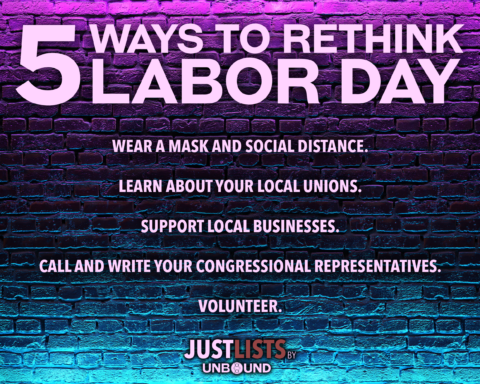

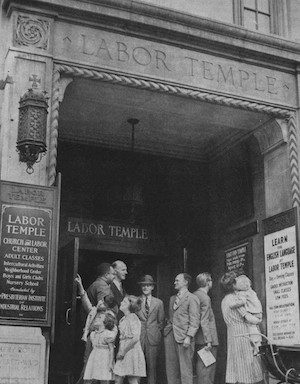
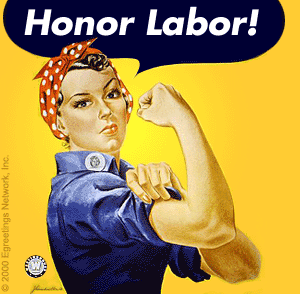
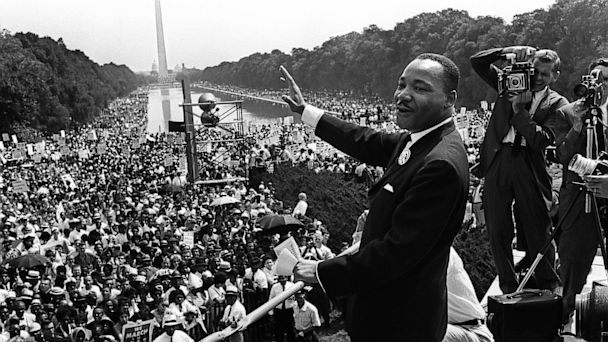
Unbound Social